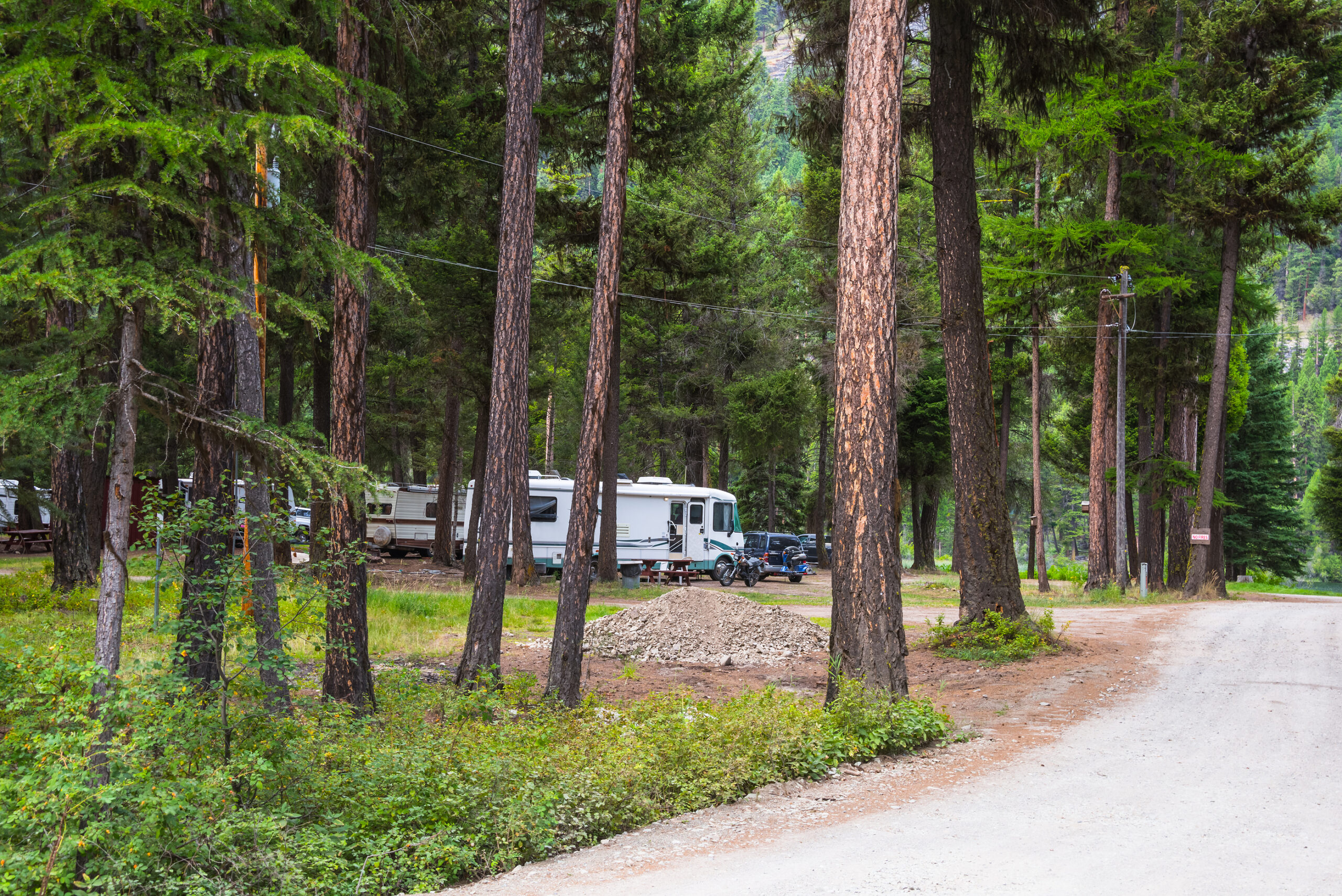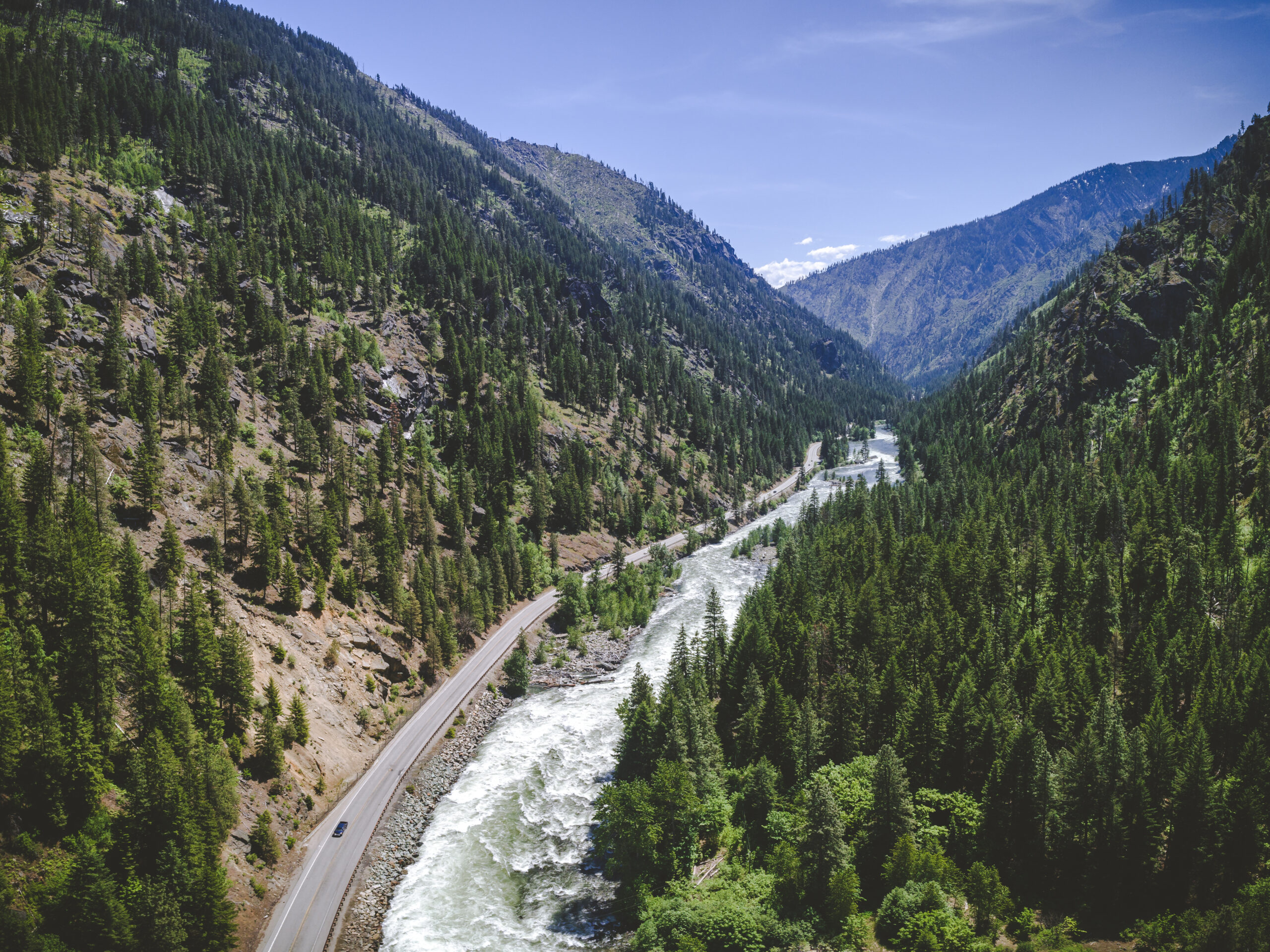The RV park industry in Washington State has experienced remarkable growth, particularly in the area of long-term stays. This trend is driven by a combination of economic factors, lifestyle preferences, and the state’s attractive seasonal offerings.
Understanding these trends is crucial for campground owners who wish to optimize their operations and cater to a growing market of long-term guests. This article delves into the specifics of long-term stay trends in Washington, offering valuable insights and practical advice for campground owners.
By embracing these trends, owners can enhance their revenue stability, build a loyal customer base, and improve operational efficiency.
Understanding Long-Term Stay Trends in Washington State
What Constitutes a Long-Term Stay?
Long-term stays typically refer to reservations lasting a month or more. Unlike short-term stays, which often span a few days to a week, long-term guests treat the campground as a temporary residence. This distinction is crucial as it influences the type of services and amenities required to cater to these guests effectively.
- Long-term stays often necessitate more significant investments in infrastructure and amenities, such as reliable internet access, laundry facilities, and recreational spaces.
- The nature of long-term stays often means that guests will integrate more closely with the local community and the campground’s social fabric.
- Long-term stay guests may require more personalized services and might participate in local events and activities, making them a more stable and engaged clientele.
- They also tend to lead to stronger relationships between the guests and the campground staff, fostering a sense of loyalty and repeat visits.
Understanding these nuances is essential for campground owners to effectively cater to this market segment.
Market Analysis and Demographics
In Washington, just as in the rest of North America, the demand for long-term stays has been on the rise. This trend is driven by the state’s scenic beauty, diverse recreational opportunities, and relatively mild climate.
The demographic profile of these long-term guests often includes retirees, remote workers, and families seeking affordable living arrangements.
- Retirees form a significant portion of long-term RV guests. They are attracted by the freedom and flexibility that RV living offers, allowing them to travel and explore different regions without the constraints of traditional housing.
For many retirees, the cost savings associated with long-term RV stays are also a major draw, as they can stretch their retirement savings while enjoying a high quality of life.
- Remote workers represent another growing segment of long-term RV guests. The rise of remote work has enabled many individuals to work from anywhere with an internet connection, leading to an increase in the number of people choosing to live and work from their RVs.
These individuals are often younger professionals who value the flexibility and adventure that come with a mobile lifestyle. For remote workers, access to reliable internet and amenities that support a work-life balance is crucial.
- Families seeking affordable and enriching living arrangements also contribute to the demand for long-term stays. These families often use the opportunity to travel and explore new places while providing their children with unique educational experiences.
Long-term RV living allows families to reduce housing costs and allocate more resources toward travel and activities.
The growing interest in long-term stays among these diverse demographic groups highlights the need for campgrounds to adapt their services and amenities to meet the specific needs of long-term guests.
Factors Driving Long-Term Stays in Washington

Economic Factors
Economic considerations are significant drivers of long-term stays. Affordability and cost of living in Washington make it an attractive option for many people. According to data from Zillow, the median home price in Washington State is significantly higher than the national average, making RV living an appealing alternative for those looking to save money.
Staying in an RV park can be significantly cheaper than traditional housing, especially in areas with high real estate prices.
- Retirees on fixed incomes find that long-term RV stays allow them to stretch their savings while enjoying a high quality of life.
- Remote workers also appreciate the cost savings that come with reduced living expenses while still maintaining comfort and convenience. The lower cost of utilities and maintenance in RV parks contributes to overall affordability.
In addition to cost savings, long-term RV stays offer economic benefits such as lower property taxes and reduced maintenance costs. RV owners do not have to worry about property taxes, which can be a significant financial burden for homeowners.
Maintenance costs are also lower, as RV parks typically take care of common area maintenance, leaving guests responsible only for their personal living spaces.
Lifestyle Preferences
The growing preference for a mobile lifestyle is another major factor driving long-term stays. This trend is particularly evident among younger generations who value flexibility and freedom.
This lifestyle offers the opportunity to explore new places, meet diverse communities, and enjoy various outdoor activities. The ability to customize and personalize their living space also appeals to those who seek a unique and dynamic lifestyle. For many, the RV lifestyle represents a break from the traditional nine-to-five routine, providing a sense of adventure and spontaneity.
The rise of remote work has further accelerated this trend, allowing individuals to work from anywhere with an internet connection. Remote workers are drawn to the idea of being able to change their environment without sacrificing their jobs. They can work from a beach one month and a mountain range the next, all while maintaining a steady income.
Additionally, the concept of minimalism and living with fewer possessions has gained popularity, further fueling the appeal of the RV lifestyle. Many individuals and families are choosing to downsize their belongings and embrace a simpler, more sustainable way of living. The RV lifestyle allows them to focus on experiences rather than material possessions, promoting a more fulfilling and less cluttered life.
Seasonal Attractions and Climate
Washington’s mild climate and diverse attractions make it an ideal destination for long-term stays. The state offers a range of outdoor activities and natural beauty that attract RVers year-round.
- In the summer, visitors can enjoy hiking, fishing, and exploring national parks.
- Winter season offers skiing, snowboarding, and other snow-related activities.
These seasonal attractions provide compelling reasons for RVers to settle in Washington for extended periods.
Additionally, the state’s scenic landscapes, including forests, mountains, and coastlines, offer a picturesque and serene environment that enhances the overall experience of long-term stays. The opportunity to experience different seasons and the changing natural scenery is a significant draw for many RVers.
For example, the North Cascades National Park offers stunning views and numerous hiking trails, attracting outdoor enthusiasts during the warmer months. In the winter, destinations like Mount Rainier and Stevens Pass become popular spots for skiing and snowboarding.
Washington’s climate also plays a role in attracting long-term RVers. The state experiences relatively mild winters compared to other northern states, making it a comfortable location for year-round RV living. Coastal regions, in particular, benefit from moderate temperatures and less extreme weather, providing an ideal environment for long-term stays.
Benefits of Catering to Long-Term Stays
Revenue Stability
One of the primary benefits of catering to long-term stays is revenue stability.
Long-term guests provide a consistent and predictable income stream, reducing the volatility often associated with short-term bookings. This stability allows campground owners to better plan and allocate resources, ensuring a steady cash flow throughout the year.
With long-term guests, campground owners can also reduce marketing and turnover costs, as the need to constantly attract new short-term visitors is minimized. This consistent revenue stream enables campground owners to invest in infrastructure improvements, enhance amenities, and offer better services to all guests.
Revenue stability also allows campground owners to implement long-term planning and development strategies. With a reliable income stream, owners can make informed decisions about future investments and expansions. This financial stability can lead to the creation of more comprehensive and attractive offerings, further enhancing the campground’s appeal to long-term guests.
Community Building
Long-term guests contribute to the development of a loyal customer base. By fostering a sense of community, campground owners can create an environment where guests feel welcomed and valued. This sense of belonging encourages guests to return year after year, building a loyal and reliable clientele.
Campgrounds that cater to long-term stays often develop a unique atmosphere, where guests form friendships, participate in community events, and support one another. This community-building aspect not only enhances the guest experience but also contributes to the campground’s reputation and appeal.
Building a strong community within the campground can lead to positive word-of-mouth marketing. Satisfied long-term guests are likely to recommend the campground to friends and family, attracting new visitors and potential long-term guests.
Operational Efficiency
Catering to long-term stays can also lead to operational efficiency.
With long-term guests, campground owners can streamline management processes, reduce turnover expenses, and simplify maintenance tasks.
- Long-term guests typically require less frequent check-ins and check-outs, reducing administrative burdens and allowing staff to focus on other important tasks.
- They are also more likely to take care of their living spaces, resulting in lower maintenance and repair costs.
- With a stable and predictable guest base, campground owners can better manage inventory levels and reduce waste.
This operational efficiency enables campground owners to allocate resources more effectively, improving overall operations and enhancing the guest experience.
Challenges and Considerations for Campground Owners
Zoning and Regulations
Understanding local zoning laws and regulations is essential for campground owners looking to cater to long-term stays. Different municipalities and counties in Washington may have specific requirements and restrictions regarding long-term RV stays.
It is crucial for campground owners to familiarize themselves with these regulations to ensure compliance and avoid potential legal issues.
This may involve:
- Obtaining special permits
- Adhering to occupancy limits
- Meeting specific health and safety standards
By staying informed and proactive about zoning and regulatory requirements, campground owners can create a safe and compliant environment for their guests.
Infrastructure and Amenities
To attract and retain long-term guests, campgrounds must invest in upgrading facilities and providing necessary amenities.
Long-term guests often require amenities such as reliable Wi-Fi, laundry facilities, and recreational areas. Ensuring that these amenities are available and well-maintained is crucial to creating a comfortable and enjoyable experience for long-term guests.
Additionally, campgrounds may need to enhance their infrastructure to accommodate long-term stays, such as upgrading electrical systems, improving sewage and water connections, and ensuring adequate space for RVs.
Providing high-quality amenities and facilities can also lead to positive guest reviews and higher ratings. This positive feedback can attract new long-term guests and enhance the campground’s reputation.
Marketing and Outreach
Effective marketing and outreach strategies are essential to attract long-term guests.
Campground owners should focus on promoting their unique features, amenities, and benefits that cater specifically to long-term stays. This may include highlighting the scenic beauty of the location, the availability of high-quality amenities, and the sense of community within the campground.
Online presence and reviews play a significant role in attracting long-term guests. Ensuring that the campground has a well-designed website, active social media profiles, and positive online reviews can significantly impact its attractiveness to potential long-term guests.
Additionally, partnering with RV clubs, travel blogs, and other industry influencers can help spread the word and attract a broader audience.
Marketing efforts should also include targeted advertising and promotions. Offering special discounts or packages for long-term stays can attract potential guests and encourage them to book extended reservations. Providing detailed information about the amenities and services available for long-term guests can also help differentiate the campground from competitors.
RoverPass Premium Website Builder is a solution tailored for modern campgrounds. Our team has the expertise to create visually appealing, user-friendly websites that effectively communicate a campground’s appeal. With SEO optimization and content creation skills, we can ensure that websites rank well in search engines, making it easier for potential long-term stay guests to find you.
Best Practices for Managing Long-Term Guests
Reservation Management
Efficient reservation management systems are crucial for handling long-term stays. Implementing a user-friendly and flexible booking system can streamline the reservation process, making it easier for guests to book extended stays.
Offering flexible reservation policies, such as monthly rates, extended stay discounts, and flexible cancellation policies, can also attract long-term guests.
An efficient reservation system can also help manage occupancy levels and prevent overbooking, ensuring that long-term guests have a positive and hassle-free experience.
RoverPass campground reservation software was designed to help RV parks simplify and streamline reservations. It allows campers to book seamlessly and provides them with customizable options to choose preferred sites based on amenities and location.
Customer Service and Engagement
Building strong relationships with long-term guests through excellent customer service and engagement is vital. Campground owners and staff should focus on providing personalized service, addressing guests’ needs, and actively seeking feedback.
Regularly engaging with long-term guests through community events, social gatherings, and newsletters can help create a sense of belonging and loyalty.
By fostering positive relationships and addressing any concerns promptly, campground owners can enhance guest satisfaction and encourage repeat visits. Providing exceptional customer service can also lead to positive reviews and recommendations, attracting new long-term guests and enhancing the campground’s reputation.
Creating a Comfortable Environment
Creating a comfortable and welcoming environment is key to retaining long-term guests. Campground owners should ensure that the campground is safe, clean, and well-maintained. Providing a home-like atmosphere with amenities such as cozy common areas, recreational facilities, and organized activities can enhance the overall experience for long-term guests.
Additionally, ensuring that guests feel safe and secure by implementing safety measures, such as proper lighting and emergency procedures, is crucial for their peace of mind and satisfaction. Creating a comfortable environment can lead to higher guest retention rates and positive word-of-mouth marketing.
Frequently Asked Questions
What defines a long-term stay in an RV park?
A long-term stay typically refers to reservations lasting a month or more. Unlike short-term stays, which usually last a few days to a week, long-term guests use the campground as a temporary residence.
Why are long-term stays becoming more popular in Washington State?
Long-term stays are growing due to economic factors, the rise of remote work, and Washington’s mild climate and seasonal attractions. These factors make it an attractive option for various demographics, including retirees and remote workers.
What amenities are important for long-term guests?
Long-term guests often require reliable internet access, laundry facilities, and recreational areas. These amenities help create a comfortable and enjoyable experience, making it more likely for guests to stay longer and return.
How do long-term stays benefit campground owners?
Catering to long-term stays offers revenue stability, reduces marketing and turnover costs, and fosters a loyal customer base. It also leads to operational efficiency, as long-term guests typically require less frequent check-ins and check-outs.
What challenges do campground owners face with long-term stays?
Challenges include understanding and complying with local zoning laws and regulations, upgrading infrastructure, and providing necessary amenities. Effective marketing and outreach strategies are also essential to attract and retain long-term guests.
How can campground owners attract long-term guests?
Owners can attract long-term guests by offering flexible reservation policies, promoting unique features and amenities, maintaining a strong online presence, and engaging in targeted marketing efforts. Partnering with RV clubs and influencers can also help.
What is the demographic profile of long-term guests?
Long-term guests often include retirees, remote workers, and families seeking affordable living arrangements. These groups are attracted by the flexibility, cost savings, and lifestyle opportunities that long-term RV stays offer.
What makes Washington State an ideal destination for long-term stays?
Washington State’s mild climate, diverse outdoor activities, and scenic landscapes make it an appealing destination for long-term RV stays. The state offers year-round attractions, from hiking and fishing in the summer to skiing and snowboarding in the winter.
How do long-term guests contribute to a campground’s community?
Long-term guests help build a sense of community within the campground by forming friendships, participating in events, and supporting one another. This sense of belonging encourages loyalty and repeat visits, enhancing the overall guest experience.
For more insights and tips on optimizing your campground business, keep reading our blog!






